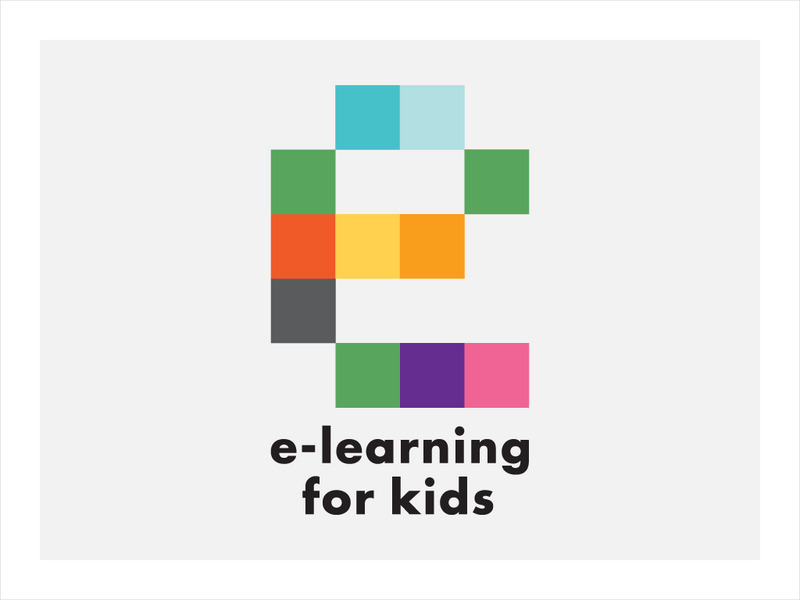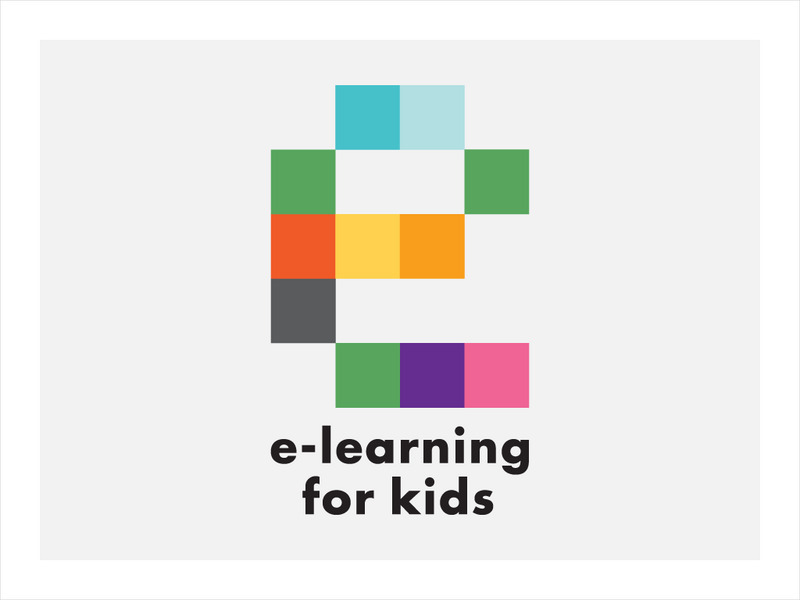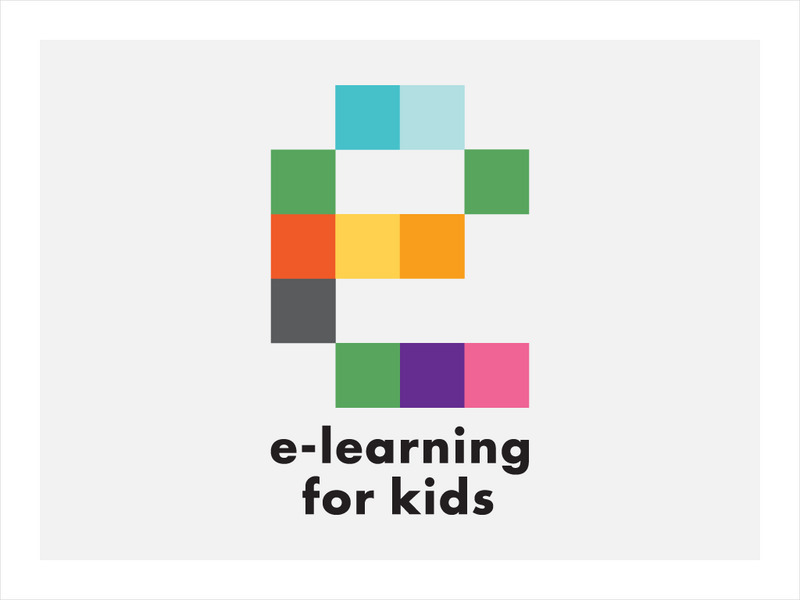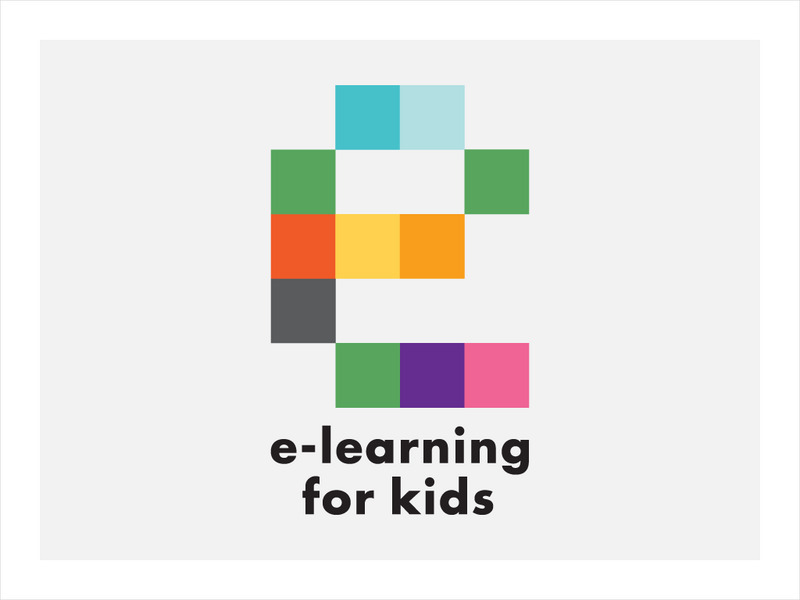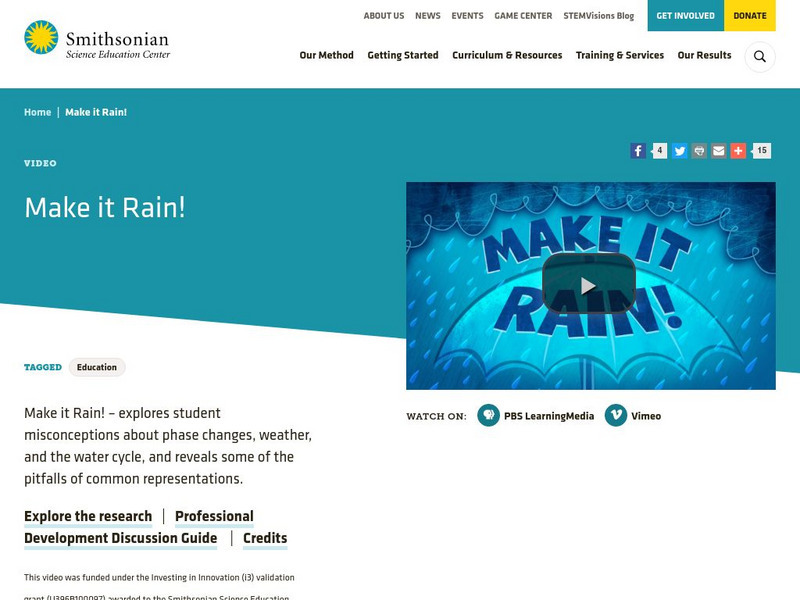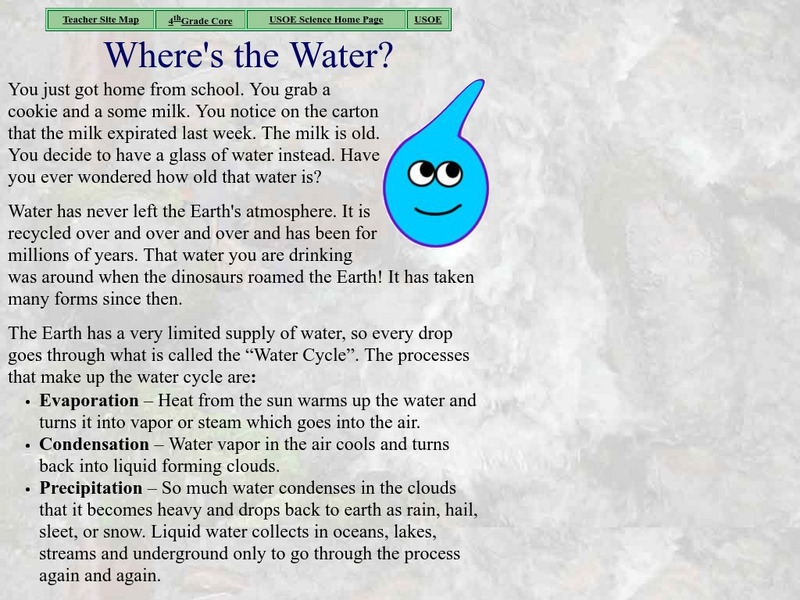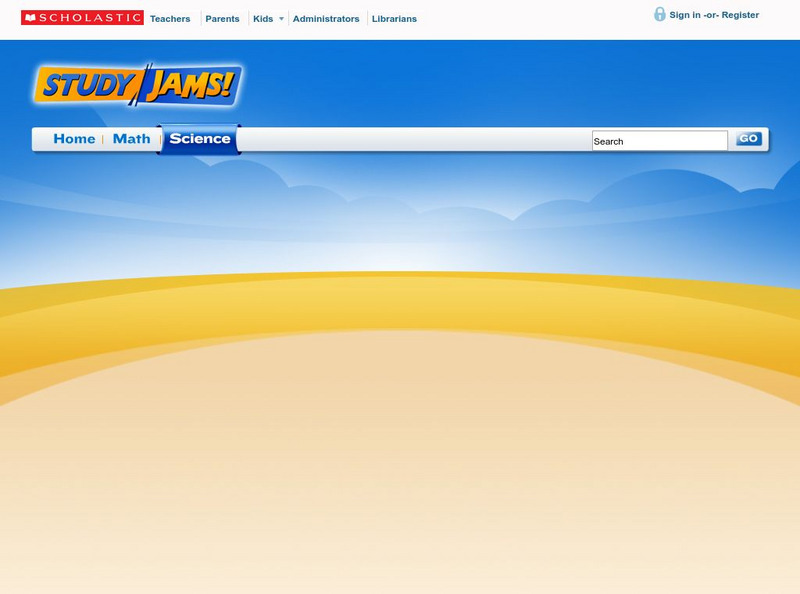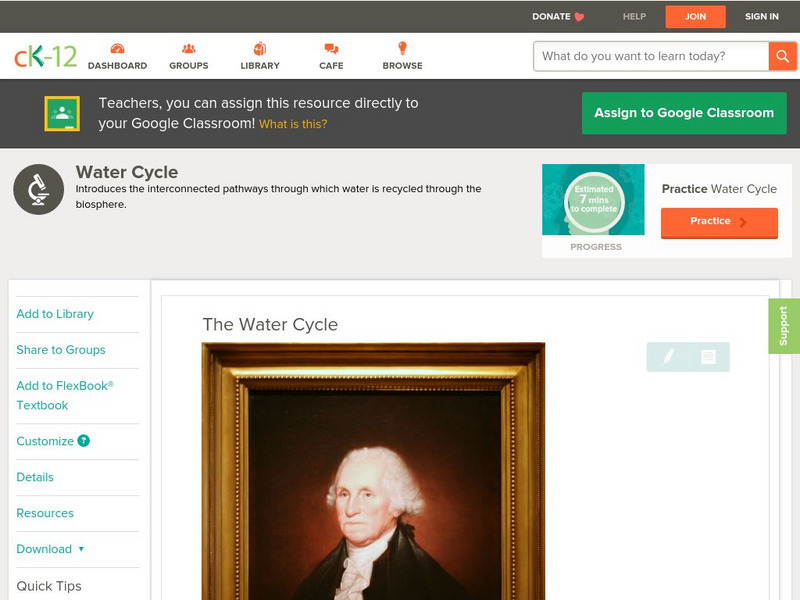Hi, what do you want to do?
E-learning for Kids
E Learning for Kids: Science: Bermuda Triangle: What Is Condensation?
Cindy is at the beach learning a lot about water. Join her to explore the water cycle.
E-learning for Kids
E Learning for Kids: Science: Rio De Janeiro Carnival: What Is Boiling?
Ready for the carnival? First, help Joao get ready for his test about the water cycle, and then explore other water cycle processes.
E-learning for Kids
E Learning for Kids: Science: Loch Ness: What Happens When Solids and Liquids Are Heated or Cooled?
Students will look at what happens to different types of matter when they have a change of state.
E-learning for Kids
E Learning for Kids: Science: Atlantic Ocean: What Is the Water Cycle?
Explains the three states of water, how the water cycle works, and the role of temperature. Includes a fun fact quiz.
Scholastic
Scholastic: Study Jams! Science: Weather and Climate: Water Cycle
Water water everywhere. Check out this video clip and test understanding about the cycle of water from the earth to the atmosphere.
CK-12 Foundation
Ck 12: Earth Science: Processes of the Water Cycle Study Guide
[Free Registration/Login may be required to access all resource tools.] This study guide summarizes key points about the water cycle. Includes a few questions to check for understanding.
SRI International
Performance Assessment Links in Science: Up, Up and Away (Lesson)
Students will observe water evaporation in this performance task, and investigate the water cycle. The task is designed for Grade Two.
BBC
Bbc Schools: Ks2 Bitesize: Science: Materials: Changes in Materials
Help solve the mystery and find the missing crystal. Following the activity, read more about chemical and physical changes, and then take a quick quiz to check for understanding.
Center for Educational Technologies
Earth Science Explorer: The Water Cycle
This is a very brief overview of the water cycle, but it does have a nice graphical representation.
Science Buddies
Science Buddies: Cumulus Maximus: Make Your Own Cloud!
In this experiment, you'll make your own cloud in a jar, and get to test the conditions that are required to make a cloud form.
Smithsonian Institution
Smithsonian Science Education Center: Make It Rain
How do you show students that the water cycle is more than just the traditional model of the ocean, clouds, and mountains and actually a part of their daily lives? This video will show multiple models of different part of the water cycle...
Utah State Office of Education
Utah Science: Where's the Water?
Discover the ins and outs of the water cycle through this collection of experiments and activities.
Concord Consortium
Concord Consortium: Stem Resources: Relative Humidity Measurement
Using the wet bulb-dry bulb method, students will compare the temperature of a dry temperature sensor and a wet temperature sensor. By comparing the temperatures, students will be able to find the relative humidity. After completing the...
Sophia Learning
Sophia: Bill Nye Demonstration: Dunking Bird
Take a look at this video from Bill Nye the Science Guy as he demonstrates the science behind the Dunking Bird. [1:34]
Center of Science and Industry
Cosi Columbus: Clues About Clouds
Science experiment that simulates how clouds are formed. Includes full list of materials, procedures, and scientific explanation of what must happen in the atmosphere for cloud formation to occur.
Scholastic
Scholastic: Study Jams! Science: Ecosystems: Water Cycle
Watch an animated video on the water cycle, become familiar with related vocabulary terms, and then quiz yourself on the parts of the water cycle, and review your answers when you're done. Site includes guidelines for a lesson entitled...
Math Science Nucleus
Math/science Nucleus: Giving Water a Second Chance
This animation discusses water and the water cycle in a storybook format. Condensation, evaporation, and precipitation are all covered.
Math Science Nucleus
Math/science Nucleus: Drippy Water Cycle Animation
This animation discusses the water cycle in a storybook format using the character Drippy. All the stages of the water cycle are covered.
Science Education Resource Center at Carleton College
Serc: Investigating Three Main Ingredients Needed to Create a Cloud in a Bottle
In the science lab, young scholars will create and observe the conditions necessary to make a cloud in a bottle.
CK-12 Foundation
Ck 12: Life Science: Water Cycle
[Free Registration/Login may be required to access all resource tools.] Water and elements like carbon and nitrogen are constantly being recycled through the environment. This process is called a biogeochemical cycle because it involves...
BBC
Bb Ci Schools: Revisewise Science: Solids, Liquids, Gases
This site contains an interactive activity in which students can learn about the three states of matter. There is also a factsheet that lists numerous properties of liquids, solids, and gases. The factsheet also uses water as an example...
Science Struck
Science Struck: Water Cycle: An Easy Explanation for Kids
Provides a simple explanation of the water cycle by describing four main stages - evaporation, condensation, precipitation, and collection. Includes three project ideas and some interesting facts.
Science Struck
Science Struck: Water Cycle Diagram
Describes the four main stages of the water cycle - evaporation, condensation, precipitation, and collection.
PBS
Pbs Learning Media: Biome in a Baggie
This ZOOMSci video segment shows how to create self-contained environments and explore how plants grow under different conditions. [3:24]





